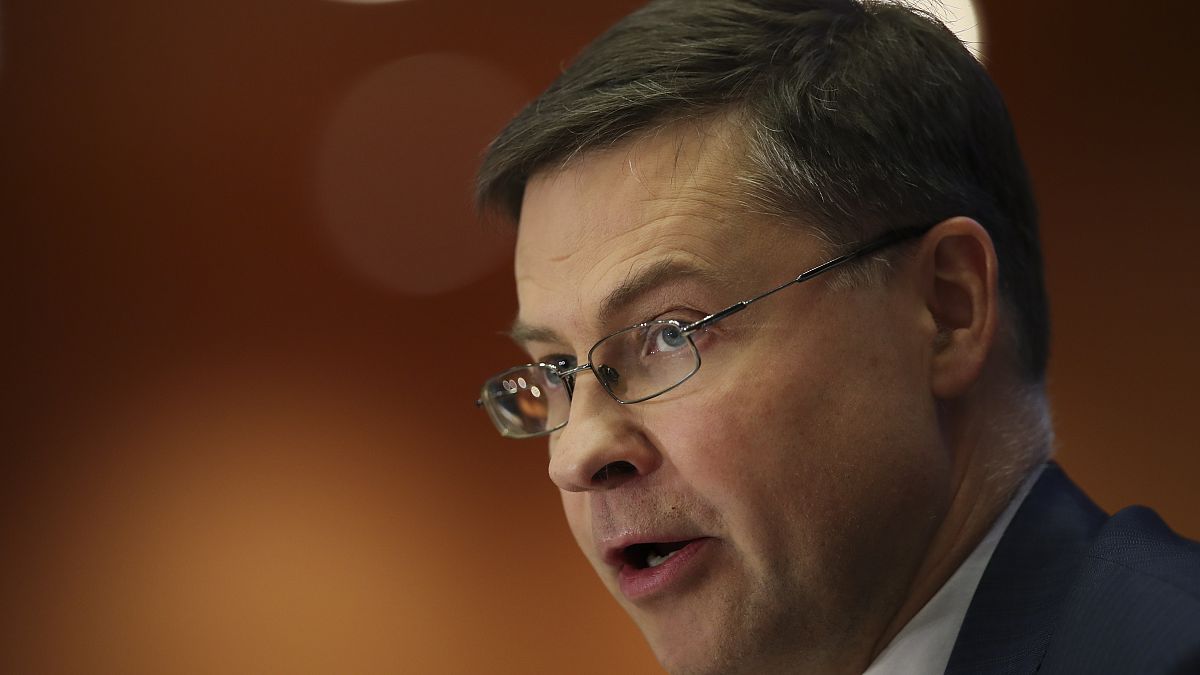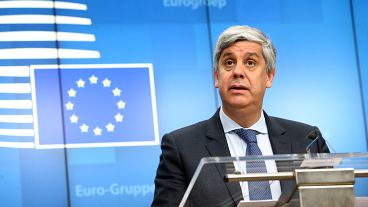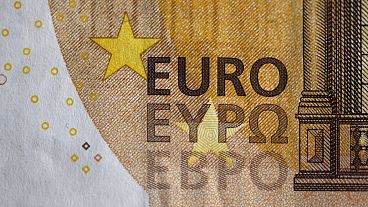It comes after EU countries agreed a €500 billion coronavirus rescue package.
The Eurozone’s €500 billion coronavirus rescue package will not unleash more austerity on Europe, and some of the funds will be open to EU countries outside the single currency, European Commission Executive Vice-President Valdis Dombrovskis told Euronews in an exclusive interview.
“We have provided member states with all the fiscal flexibility, so basically activated the so-called general escape clause. Also the European Stability Mechanism will come with no additional conditionality," Dombrovskis said when asked whether the bailout package would eventually mean more belt-tightening for Europeans.
“Basically the only requirement is that this money is going to be spent directly or indirectly to the health-related measures and measured related to the coronavirus response,” he said in an interview with Euronews’ business editor Sasha Vakulina.
Non-Eurozone support
The half-a-trillion-euro deal agreed on Thursday still has to be signed off by national leaders next week. It provides a safety net for healthcare systems overwhelmed by the COVID-19 crisis.
Governments will be able to apply for access – under certain conditions – to a total of €240 billion made available under the European Stability Mechanism (ESM), the bailout fund created during the Eurozone debt crisis.
Asked if Eurozone countries would have better access to the funds than other EU member states, Dombrovskis suggested the club wasn't an exclusive one.
“There is balance of payment facilities available for countries outside of the Eurozone. And from the European Commission side we were arguing that we leave some headroom in the EU budget so that there is a possibility to provide this balance of payments support to non-Eurozone countries if this becomes necessary,” he said.
"Part of yesterday’s decision was also that member states agreed with the Commission’s proposal to use maximum flexibility of EU funds which are still available in this year’s budget with no national co-financing. So 100% European financing and member states have all the flexibility to put this money to fight the coronavirus crisis," he added.
Corona bonds not off the table
Dombrovskis, who is also the EU's commissioner in charge of economic affairs, did not rule out the possibility for the bloc to issue joint debt – or so-called “corona bonds” – to finance its recovery after the coronavirus crisis.
"What the Eurogroup has agreed yesterday is basically another set of immediate crisis-response measures. But at the same time, discussions started also on the recovery phase," he said, adding that the tools needed to help the recovery continue to be debated.
"What has been recognised by the Eurogroup is that the next Multi-Annual-Financial Framework (MFF) will play a central role in this recovery phase. At the same time, ministers also discussed other ideas, other options, like for example Recovery Fund, and how this can complement the MFF. So discussions on instruments like Recovery Fund will continue."



